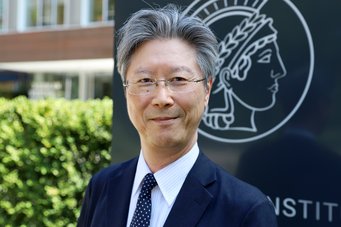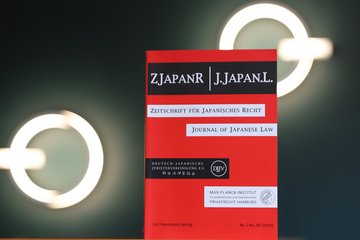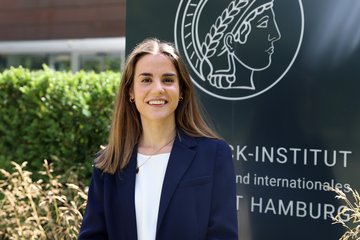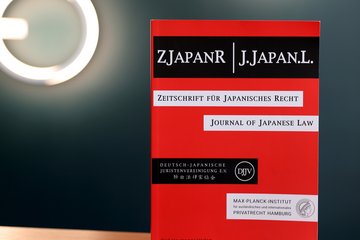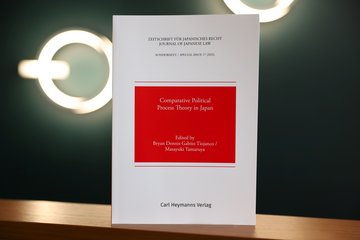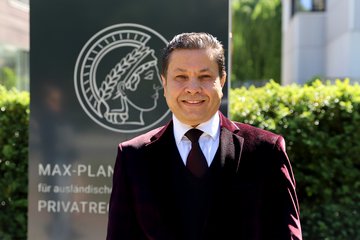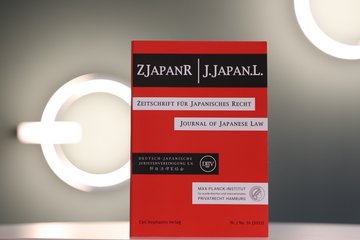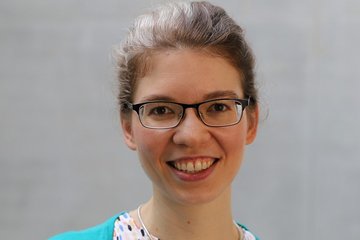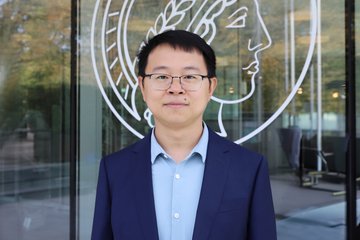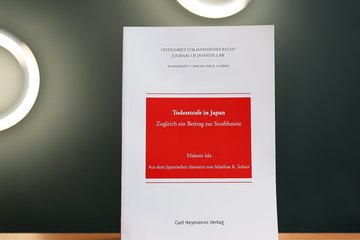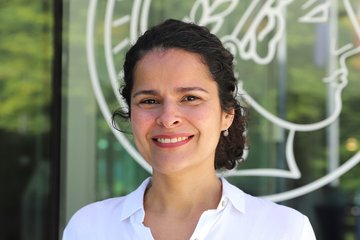Keizo Yamamoto – Visiting Scholar at the Institute
Since 2008 the Institute has taken part in a cooperative exchange with the Faculty of Law at Kyoto University, as administered by the Institute’s Centre of Expertise on Japan. A researcher who for many years has contributed greatly to this exchange through his special commitment is once again a guest in Hamburg. Keizo Yamamoto, Professor at Kyoto University, is one of Japan's most renowned civil law experts. Most recently, he played a leading role in shaping the Japanese reform of the law of obligations.
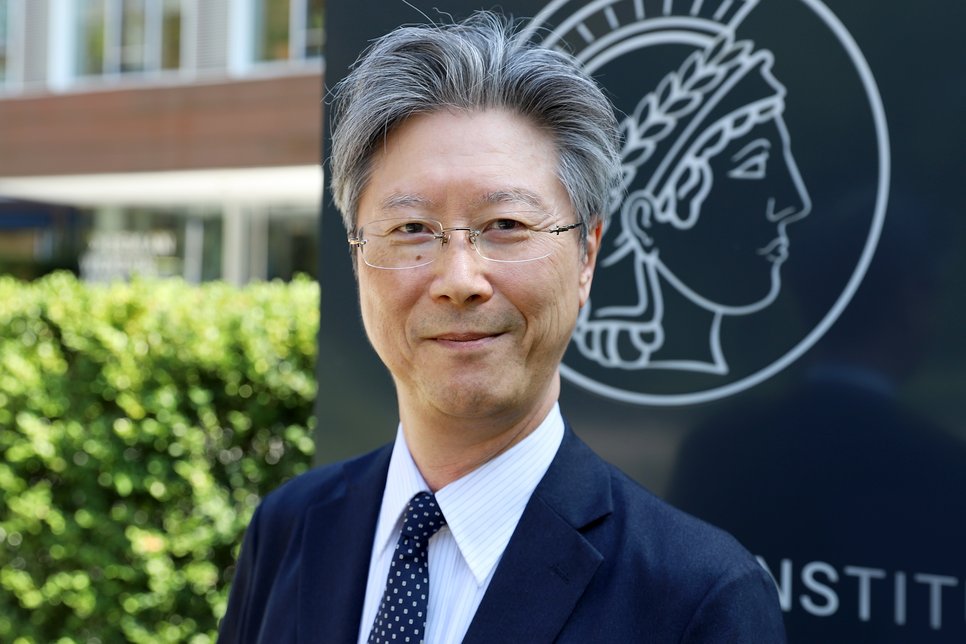
Yamamoto was a member of the parliamentary committee that formulated the draft for the reform of the law of obligations on behalf of the Japanese Ministry of Justice, completed in 2017 and eventually entering into force in 2020. From a German perspective, the process of reforming the Japanese Civil Code, created around 120 years earlier through the reception of Western law, is of particular interest as the German Bürgerliches Gesetzbuch was a model for the original law alongside the French Code civil.
Parallel to his efforts on the draft law itself, Yamamoto also spent a number of years actively addressing the process of reform in his academic work. In 2019, the Centre of Expertise on Japan was able to secure his participation in an international symposium in Hamburg on the topic of modernizing the law of obligations. He has also been the author or editor of an array of publications appearing in the Zeitschrift für Japanisches Recht/Journal of Japanese Law (ZJapanR/J.Japan.L.) as well as in the Institute series Materialien zum ausländischen und internationalen Privatrecht, in which he not only documents the specific amendment of the law but also provides German-speaking readers with a comprehensive overview of the background and process of the reform.
One theme he has been working on for many years is the importance of studying Japanese law for comparative law. For approximately ten years, he has regularly used his summer break to research this topic at the Institute. Last year, he took a sabbatical to conduct research in Hamburg for ten months. He has now returned for another two months or so.
“It seems to me that in the eyes of many lawyers in Japan, but also in many other countries outside Europe and perhaps also the USA, comparative law still has the goal of researching European or Western law in order to enrich and further develop the law of non-European countries,” says Yamamoto. “Conversely, there is the problem – with a few exceptions – that European legal scholars, even when they are interested in law grounded in non-European languages, are unable to research it due to a lack of the necessary language skills. Their Japanese colleagues, by contrast, are expected to contribute to international comparative law as informed by Japanese law. In my view, Japanese law must first be located within the discipline of comparative law; thereafter, a frame of reference needs to be created on the basis of which comparative legal exchange in many directions becomes possible. And in this way, I hope to make a comparative contribution through my current work on Japanese consumer contract law.”
Yamamoto has been involved in civil law since the beginning of his academic career, which he began in 1983 as a research assistant at the University of Kyoto. From 1990 to 1992, he went to the Ludwig Maximilian University of Munich as a Humboldt Fellow, where he conducted research under Claus-Wilhelm Canaris, and he returned there from 2001 to 2002 as a visiting scholar, also at Canaris’ professorial chair. “The 80s and 90s were to a certain extent the end of the era of classic German civil law. Since the reform of the law of obligations in 2002, a considerable change has taken place. The main reasons for this are, on the one hand, advancing Europeanization and, on the other, the increasing politicization and technologization of the law. This has repeatedly called into question the self-understanding of civil law scholarship in relation to the subjects of its research.” Despite different framework conditions, such as a EU legislative regime that does not play a meaningful role in Japan, Yamamoto sees clear parallels with Germany: “There are many influencing factors, such as the economic analysis of law or technologically driven trends of development, which are of great importance in both countries. This is also where scholarly dialogue between our two countries intersects.”
Yamamoto sees the sixteen-year cooperation between the institute and Kyoto University as a success story: “We owe the initiative for this collaboration to Director Emeritus Klaus Hopt and the former head of the Centre of Expertise on Japan, Harald Baum. The exchange program, which has seen the participation of many individuals from each of the cooperative partners, has developed extremely well. Particularly noteworthy is the lively exchange among the younger generation of scholars.”
In his view, the respective advantages of the two locations are the decisive factors underlying this positive result. Since its foundation in 1898, the Faculty of Law at Kyoto University has engaged in extensive comparative research, with German law always playing a central role. “If you want to research Japanese law from a comparative perspective, Kyoto University is one of the best places to do so. It is also situated in one of the most beautiful cities in the world, a location where more than one thousand years of history invite you to explore Japanese culture and tradition.” And for Yamamoto, the Max Planck Institute in Hamburg is also unique: “It is characterized not only by the scholars working here and by their outstanding research and by the renowned collection of its library; it also brings together a global comparative law community. For my colleagues at Kyoto University and especially for our young researchers, it is the best place to understand just what comparative law research is all about. With this cooperative effort, we have jointly created a very fruitful partnership, one allowing us to contribute to the further development of the discipline.”
Image: © Max Planck Institute for Comparative and International Private Law / Johanna Detering
